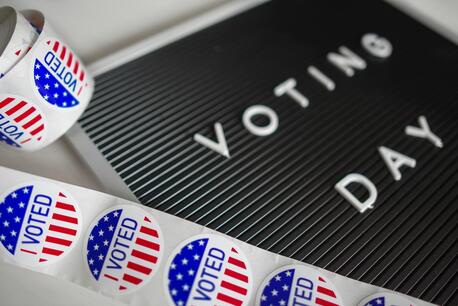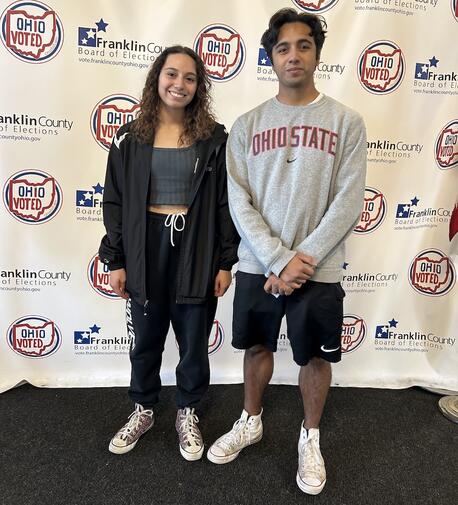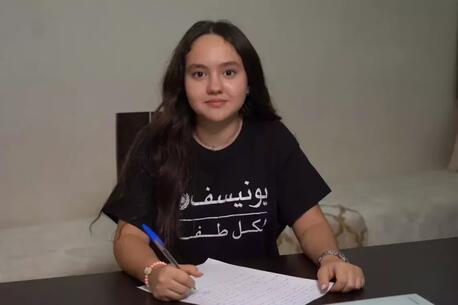
Voting Stickers and Tough Conversations at Dinnertime: What Is Your Family's Civic Engagement Story?
Vice President of UNICEF USA’s Community Alliance for Child Rights team, Tracy Nájera, discusses the role parents and caregivers can play in shaping the civic lives of children.
What strengthening democracy looks like: adults as role models
As community members, one of our roles is to make sure we’re doing our part to raise the next generation to assume their future roles as leaders and contributors in civic life.
We all have a role to play in modeling what this looks like — in strengthening democracy — whether it be attending town hall meetings, contributing our time to educate our neighbors about issues, running for office or voting.
Bottom line: Adults play a significant role teaching the children in their lives what it means and looks like to contribute to their communities.
UNICEF USA and The Harris Poll conducted a survey earlier this spring on youth engagement. In a representative survey conducted with over 3,000 young people ages 14 to 22, 55 percent responded that their opinions and perspectives are greatly influenced by their parents. Though incredibly surprising for many, this makes sense. And it offers us an opportunity.

As a young parent, I remember taking my children with me to vote. In all fairness, at that age, I think they were mainly impressed by the free “I Voted” stickers. Beyond these early morning (or sometimes late evening) trips to the polls, we would also talk about issues in the car or at the dinner table. Sometimes the issues were easy and other times they were more difficult and emotional.
These experiences with my own children showed me the importance of having shared space to unpack and understand difficult issues and current events. Through the survey, we heard from other adults and young people alike how much they, too, valued having that safe shared space.
UNICEF USA believes that parents are their children’s first teacher. To support these connections and conversations, we developed a guide for how to talk to young people about civic engagement.
Top tips include:
- Start by asking your child what they are passionate about.
- Stay positive, and listen more than you talk.
- If there's an election coming up, share information about what's on the ballot — candidates and issues — and ask how they feel about them, and how they would vote if they could.
The goal is to help young people and the adults in their lives engage in conversations in ways that respect each other's voice and perspective. Creating a generation of young people who can bridge divides and benefit their communities and society in general is the goal.
If we can accomplish even a sliver of this vision, that would be a significant step forward for all of us.
Tracy Nájera leads UNICEF USA’s Community Alliance for Child Rights team, working to improve the well-being of children here in the United States. Connect with the team and learn how to get involved here.
HOW TO HELP
There are many ways to make a difference
War, famine, poverty, natural disasters — threats to the world's children keep coming. But UNICEF won't stop working to keep children healthy and safe.
UNICEF works in over 190 countries and territories — more places than any other children's organization. UNICEF has the world's largest humanitarian warehouse and, when disaster strikes, can get supplies almost anywhere within 72 hours. Constantly innovating, always advocating for a better world for children, UNICEF works to ensure that every child can grow up healthy, educated, protected and respected.
Would you like to help give all children the opportunity to reach their full potential? There are many ways to get involved.




